Yueyuan Ma
Learning Implicit User Profiles for Personalized Retrieval-Based Chatbot
Aug 18, 2021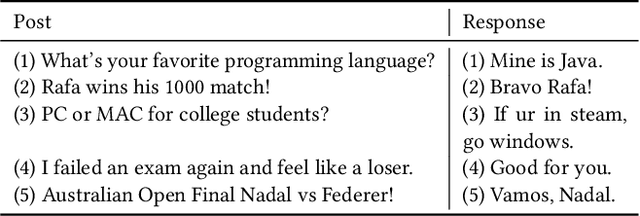
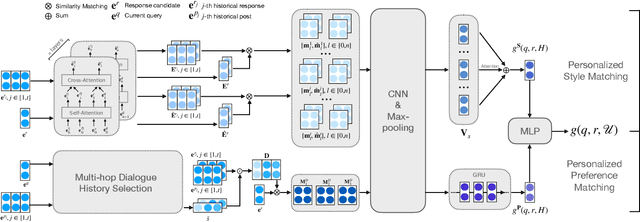
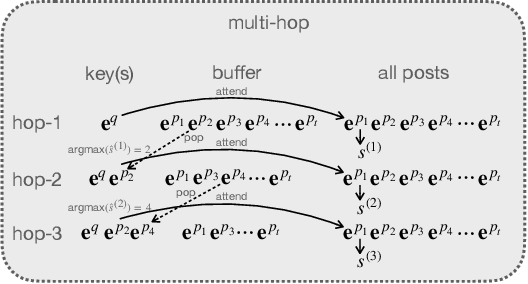
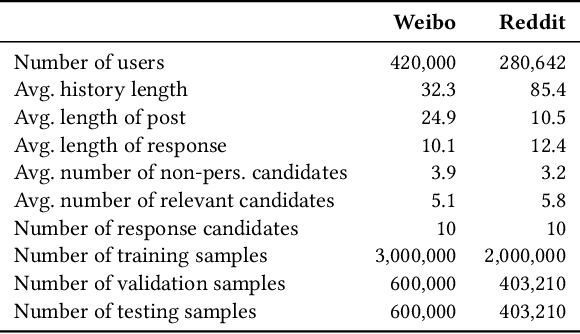
Abstract:In this paper, we explore the problem of developing personalized chatbots. A personalized chatbot is designed as a digital chatting assistant for a user. The key characteristic of a personalized chatbot is that it should have a consistent personality with the corresponding user. It can talk the same way as the user when it is delegated to respond to others' messages. We present a retrieval-based personalized chatbot model, namely IMPChat, to learn an implicit user profile from the user's dialogue history. We argue that the implicit user profile is superior to the explicit user profile regarding accessibility and flexibility. IMPChat aims to learn an implicit user profile through modeling user's personalized language style and personalized preferences separately. To learn a user's personalized language style, we elaborately build language models from shallow to deep using the user's historical responses; To model a user's personalized preferences, we explore the conditional relations underneath each post-response pair of the user. The personalized preferences are dynamic and context-aware: we assign higher weights to those historical pairs that are topically related to the current query when aggregating the personalized preferences. We match each response candidate with the personalized language style and personalized preference, respectively, and fuse the two matching signals to determine the final ranking score. Comprehensive experiments on two large datasets show that our method outperforms all baseline models.
Pchatbot: A Large-Scale Dataset for Personalized Chatbot
Sep 28, 2020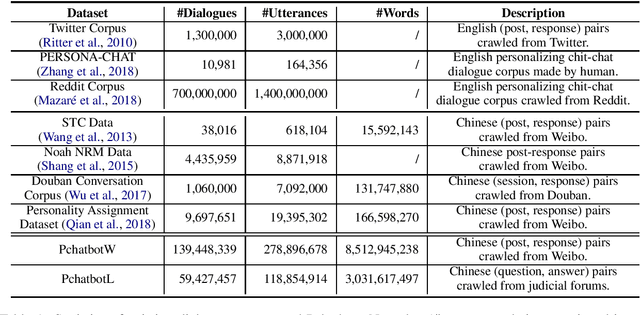


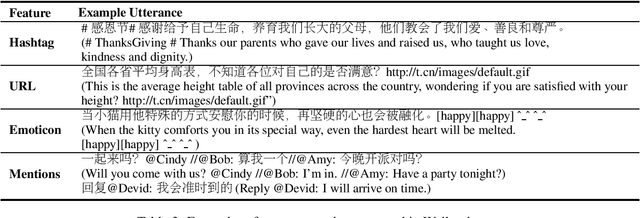
Abstract:Natural language dialogue systems raise great attention recently. As many dialogue models are data-driven, high quality datasets are essential to these systems. In this paper, we introduce Pchatbot, a large scale dialogue dataset which contains two subsets collected from Weibo and Judical forums respectively. Different from existing datasets which only contain post-response pairs, we include anonymized user IDs as well as timestamps. This enables the development of personalized dialogue models which depend on the availability of users' historical conversations. Furthermore, the scale of Pchatbot is significantly larger than existing datasets, which might benefit the data-driven models. Our preliminary experimental study shows that a personalized chatbot model trained on Pchatbot outperforms the corresponding ad-hoc chatbot models. We also demonstrate that using larger dataset improves the quality of dialog models.
 Add to Chrome
Add to Chrome Add to Firefox
Add to Firefox Add to Edge
Add to Edge